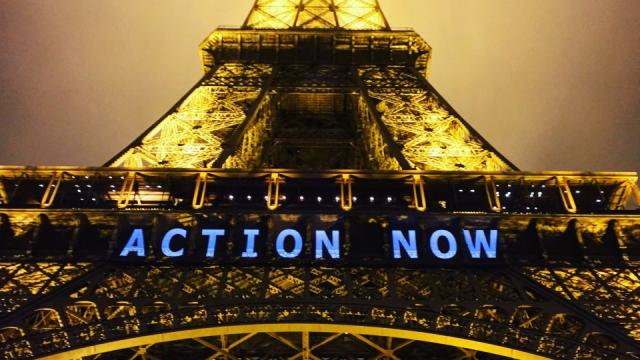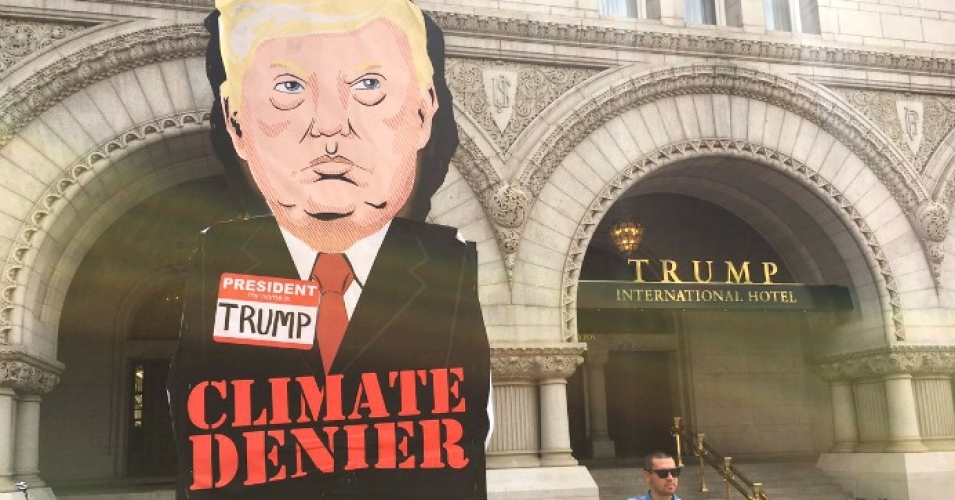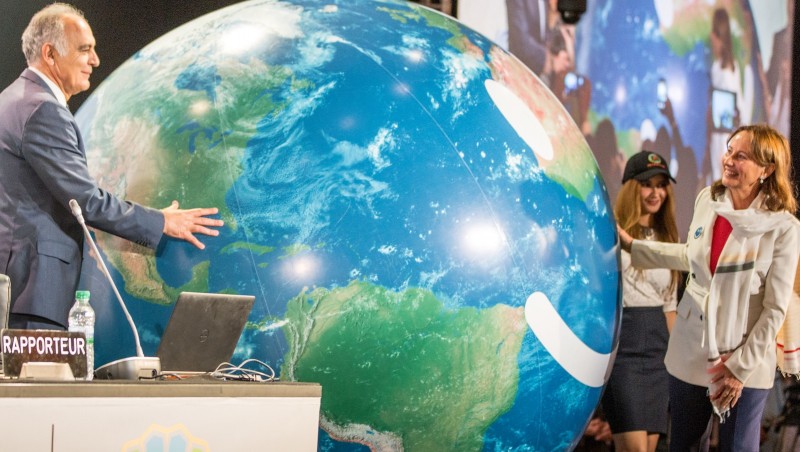
BONN, Germany – President Donald Trump’s ongoing threat to pull the U.S. out of the Paris climate agreement seems to have united the other 196 countries that signed on to the treaty. At a recent UN climate conference in Bonn, delegates signaled they will hold on to the agreement now more than ever.
Representatives from almost 200 countries convened here from May 8 through May 18 in preparation for COP23, the next UN climate talks scheduled for November. Despite being a rather technical session on mitigation and adaption regulation, the conference drew a lot of attention.
For one, it was the first round of talks under the UN’s climate convention framework (UNFCCC) since Trump entered office. In the run-up to the meeting, concerns grew over a possible American exodus from the Paris accord. Observers feared the looming decision by the U.S. would paralyze discussions and stall progress.
But in fact the opposite was the case. Despite a stream of negative signals coming from the U.S., the mood among diplomats was optimistic and constructive.
“The uncertainty swirling around the United States’ participation in the Paris Agreement did not slow progress,” said Paula Caballero, global director of the Climate Program at the World Resources Institute, who attended the conference. “If anything, countries were emboldened to move forward with more determination and show that international climate action will not be swayed by the shifting political winds of any one country,” she added.
Pressure on U.S.
President Trump said he will make a decision on whether to withdraw from the Paris agreement after the G7 summit later in May. That the U.S. is currently undecided was also visible at the conference; the U.S. delegation was smaller than usual and the diplomats remained mostly in the background during discussions.
Although American delegates tried to keep a low key, they were in the spotlight. Many actions and statements by other parties were openly hinting at the United States.
The E.U. commissioner for climate action and energy, Miguel Arias Cañete, told attendees at the conference that the agreement is “irreversible and non-negotiable.”
Meanwhile, Emmanuel De Guzman, the climate change commissioner of the Philippines, even used Trump’s own words: “Without increased climate action, no country will be great again,” he said.
But perhaps the biggest signal to the U.S. and the international community was sent by the European Union and the African, Caribbean, and Pacific Group of States (ACP). The alliance between the E.U. and 79 developing countries has agreed to common positions and next steps for implementing the agreement and strengthening cooperation to promote low-emission, climate-resilient development.
Observers believe the announcement from the E.U. and ACP could be a game changer in the climate negotiations.
“It’s unique that industrialized nations and developing countries act in concert. Usually, the groups oppose each other,” said Anna Halbig, an expert in international climate policies who has attended the last four UNFCCC conferences. “This is very positive. The countries are closing ranks, regardless of an American withdrawal.”
China and India Take the Lead
While the U.S. dithers about giving up its role in shaping international climate politics, China and India have silently taken the lead. Both countries were pointed to as positive examples in reducing coal consumption and increasing renewable energy sources.
China’s coal consumption has declined each year since 2013, and India announced it might not need its planned coal-fired power plants in the future.
China and India are set to overachieve their climate pledges under the Paris agreement. The development of the two nations alone could even compensate for any potential negative effects created by U.S. policy, according to an analysis by Climate Action Tracker, which was presented at the conference.
While the world remains hopeful that Trump won’t cancel America's participation in the climate deal, last week's gathering proved that the Paris accord won’t fall apart without the U.S. – and that other countries are willing to step up to fill the leadership void.
As Li Shuo, climate policy advisor for Greenpeace East Asia, put it: China, India, the E.U. and other countries now represent the "new coalition of the willing... [which] will help secure strong outcomes."
3 WAYS TO SHOW YOUR SUPPORT
- Log in to post comments
















